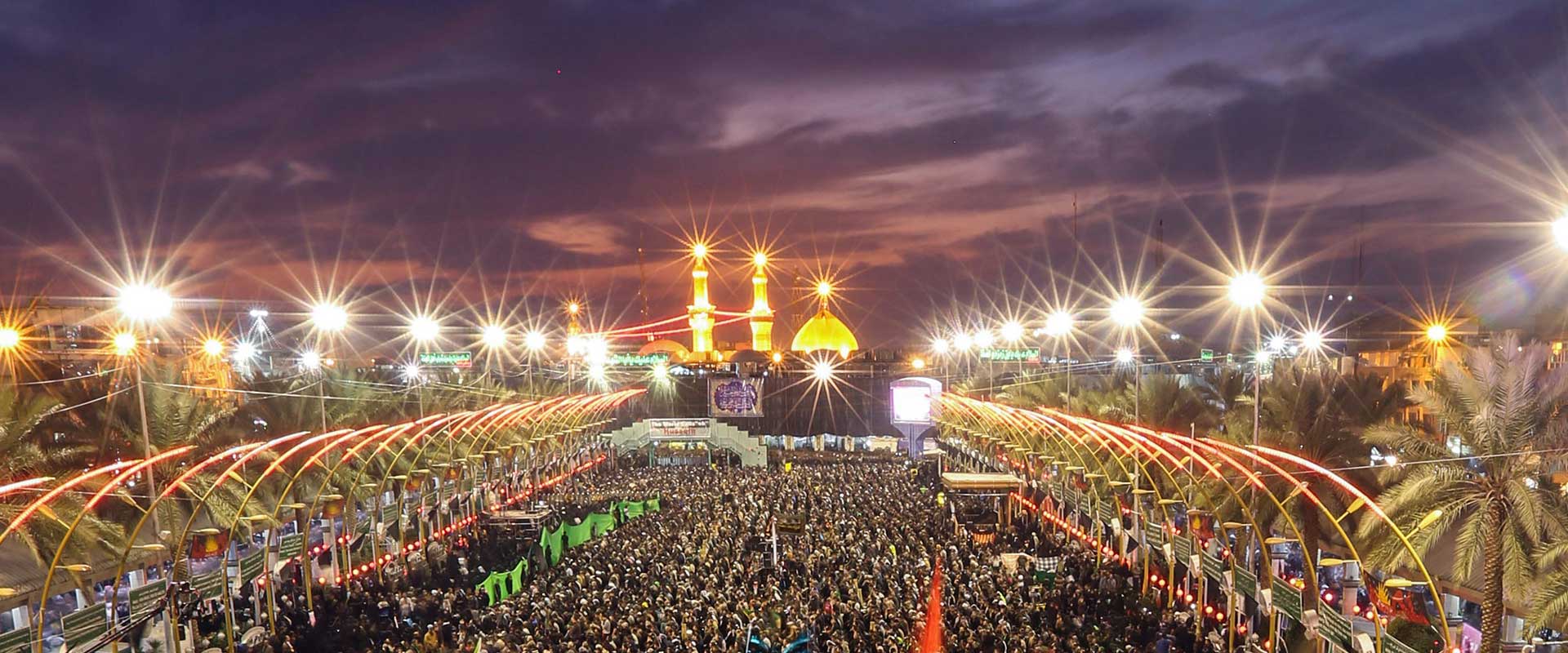The Importance of Arbaen
Muhammad J. Fadhil Lankarani,
Head of IJCA- Qum/Iran
Reflecting on the importance of visiting the holy shrine of Imam Hussein (as), who was the third Imam of Shi'a Muslims, has been overlooked by the majority of Muslim scholars.
In this article, our goal is to remind, where lack of memory has been the cause for neglect, and to inform, where the cause has been lack of knowledge and/or information regarding this action. The article elucidates the significance of what has been neglected, elaborating it from both the narrations, as well as intellectual analysis of socio-political and ethical aspects.
One of the most important narrative and doctrinal issues is about performing the pilgrimage to Imam Hussein (as). In this regard, our eminent masters of narrations have authored and compiled a great number of narrations and have devoted many different chapters related to this issue. It would be a great loss if, despite such a huge number of narrations and traditions in this regard, this issue is neglected. It is imperative that every single religious student and person of knowledge examine each and every one of these narrations and benefit from the vital points they offer.
The titles, which the author of Wasaa’il has mentioned for the abovementioned chapters need to be strongly reexamined; like “the chapter of emphasized recommendation for going on pilgrimage to Imam Hussein (as) and its obligation as a collective obligation (wujub kifa’i); in other words, the author has not only extracted the rule of emphasized recommendation, from these narrations, but has also extricated the existence of collective responsibility (wujub kifa’i) from them.
In these narrations, there are some very strange interpretations. Firstly, the Holy Imams (as) themselves have insisted on the necessity of going for the pilgrimage of Imam Hussein (as). In Wasaa’il al-Shi’ah, chapter no. 37, h. 7, we read:
"عن معاوية بن وهب قال: استأذنت على أبي عبد الله عليه السلام فقيل لي: أدخل فدخلت فوجدته في مصلاه في بيته فجلست حتى قضى صلاته فسمعته وهو يناجي ربه ويقول: " يا من خصنا بالكرامة وخصنا بالوصية ووعدنا الشفاعة وأعطانا علم ما مضى وما بقي وجعل أفئدة من الناس تهوي إلينا اغفر لي ولإخواني ولزوار قبر أبي عبد الله الحسين (عليه السلام)".
Mu’awiah bin Wahab says: “I asked for Imam Sadiq’s (as) permission to enter. The Holy Imam (as) permitted me so I entered. The Holy Imam (as) was offering his prayer at the time and I waited until he had finished. During this period, I heard him praying and saying: ‘O Allah, Who has blessed us with generosity and miracles and Who has promised us the right of intercession and Who has blessed us with the knowledge of what has passed and whatever is to come and Who has made people feel attraction towards us, forgive me, my brothers and the pilgrims of Imam Hussein (as)’.
And then he mentioned the characteristics of Imam Hussein's (as) pilgrims: ‘Those who spend their properties in the way of Imam Hussein (as) and who tolerate all kinds of hardships in his way and who, by doing this, hope to be given the reward which You have particularly decided to give those who are in relation with us; these are the people who, by going on the pilgrimage of Imam Hussein (as) want the Prophet’s (pbuh) good will and to make him happy. They are the people who carry out our commands and cause our enemies’ anger.’ In other words, the pilgrimage to Imam Hussein (as) has both things, Tawalla (friendship) and Tabarra (renouncing) at the same time. Then the Holy Imam (as) prostrated and while in his prostration, he prayed for them, which is very important. The Imam (as) said: “Shower Your blessings on the faces which have been burnt in the sunshine, and the faces which they put on the grave of Imam Hussein (as) and on the tears which are shed from the eyes of Imam Hussein's (as) pilgrims.’ And till the end of the narration, where the Holy Imam (as) says: “O Mu’awiah, those praying for the pilgrims of Imam Hussein (as) in the heavens are more numerous than those praying for them on the surface of the earth.”
Source:
Imam Hussain’s (as) Revolution: Rituals and Inspiration
By: Ayatollah Muhammad J. Fadhil Lankarani, Dr. Ali H. Al-Hakim.
Translated, foreword, annotated and footnotes by: Dr. Ali H. Al-Hakim Publisher I.J.C.A. – London – 2017 [p 10-12].

